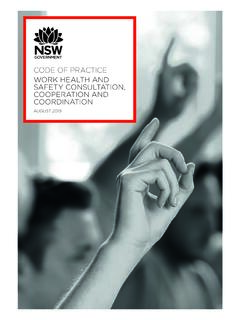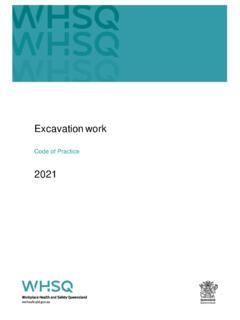Transcription of WHO global code of practice EN - World Health …
1 WHO global code of practice on the International Recruitment of Health Personnel Preamble The Member States of the World Health Organization, Recalling resolution in which the World Health Assembly requested the Director- General to develop a voluntary code of practice on the international recruitment of Health personnel in consultation with all relevant partners;. Responding to the calls of the Kampala Declaration adopted at the First global Forum on Human Resources for Health (Kampala, 2 7 March 2008) and the G8 communiqu s of 2008 and 2009. encouraging WHO to accelerate the development and adoption of a code of practice ;. Conscious of the global shortage of Health personnel and recognizing that an adequate and accessible Health workforce is fundamental to an integrated and effective Health system and for the provision of Health services;. Deeply concerned that the severe shortage of Health personnel, including highly educated and trained Health personnel, in many Member States, constitutes a major threat to the performance of Health systems and undermines the ability of these countries to achieve the Millennium Development Goals and other internationally agreed development goals.
2 Stressing that the WHO global code of practice on the International Recruitment of Health Personnel be a core component of bilateral, national, regional and global responses to the challenges of Health personnel migration and Health systems strengthening, THEREFORE. The Member States hereby agree on the following articles which are recommended as a basis for action. Article 1 Objectives The objectives of this code are: (1) to establish and promote voluntary principles and practices for the ethical international recruitment of Health personnel, taking into account the rights, obligations and expectations of source countries, destination countries and migrant Health personnel;. (2) to serve as a reference for Member States in establishing or improving the legal and institutional framework required for the international recruitment of Health personnel;. (3) to provide guidance that may be used where appropriate in the formulation and implementation of bilateral agreements and other international legal instruments.
3 (4) to facilitate and promote international discussion and advance cooperation on matters related to the ethical international recruitment of Health personnel as part of strengthening Health systems, with a particular focus on the situation of developing countries. WHO global code of practice on the International Recruitment of Health Personnel Article 2 Nature and scope The code is voluntary. Member States and other stakeholders are strongly encouraged to use the code . The code is global in scope and is intended as a guide for Member States, working together with stakeholders such as Health personnel, recruiters, employers, Health -professional organizations, relevant subregional, regional and global organizations, whether public or private sector, including nongovernmental, and all persons concerned with the international recruitment of Health personnel. The code provides ethical principles applicable to the international recruitment of Health personnel in a manner that strengthens the Health systems of developing countries, countries with economies in transition and small island states.
4 Article 3 Guiding principles The Health of all people is fundamental to the attainment of peace and security and is dependent upon the fullest cooperation of individuals and states. Governments have a responsibility for the Health of their people, which can be fulfilled only by the provision of adequate Health and social measures. Member States should take the code into account when developing their national Health policies and cooperating with each other, as appropriate. Addressing present and expected shortages in the Health workforce is crucial to protecting global Health . International migration of Health personnel can make a sound contribution to the development and strengthening of Health systems, if recruitment is properly managed. However, the setting of voluntary international principles and the coordination of national policies on international Health personnel recruitment are desirable in order to advance frameworks to equitably strengthen Health systems worldwide, to mitigate the negative effects of Health personnel migration on the Health systems of developing countries and to safeguard the rights of Health personnel.
5 The specific needs and special circumstances of countries, especially those developing countries and countries with economies in transition that are particularly vulnerable to Health workforce shortages and/or have limited capacity to implement the recommendations of this code , should be considered. Developed countries should, to the extent possible, provide technical and financial assistance to developing countries and countries with economies in transition aimed at strengthening Health systems, including Health personnel development. Member States should take into account the right to the highest attainable standard of Health of the populations of source countries, individual rights of Health personnel to leave any country in accordance with applicable laws, in order to mitigate the negative effects and maximize the positive effects of migration on the Health systems of the source countries. However, nothing in this code should be interpreted as limiting the freedom of Health personnel, in accordance with applicable laws, to migrate to countries that wish to admit and employ them.
6 International recruitment of Health personnel should be conducted in accordance with the principles of transparency, fairness and promotion of sustainability of Health systems in developing countries. Member States, in conformity with national legislation and applicable international legal instruments to which they are a party, should promote and respect fair labour practices for all Health personnel. All aspects of the employment and treatment of migrant Health personnel should be without unlawful distinction of any kind. 2. WHO global code of practice on the International Recruitment of Health Personnel Member States should strive, to the extent possible, to create a sustainable Health workforce and work towards establishing effective Health workforce planning, education and training, and retention strategies that will reduce their need to recruit migrant Health personnel. Policies and measures to strengthen the Health workforce should be appropriate for the specific conditions of each country and should be integrated within national development programmes.
7 Effective gathering of national and international data, research and sharing of information on international recruitment of Health personnel are needed to achieve the objectives of this code . Member States should facilitate circular migration of Health personnel, so that skills and knowledge can be achieved to the benefit of both source and destination countries. Article 4 Responsibilities, rights and recruitment practices Health personnel, Health professional organizations, professional councils and recruiters should seek to cooperate fully with regulators, national and local authorities in the interests of patients, Health systems, and of society in general. Recruiters and employers should, to the extent possible, be aware of and consider the outstanding legal responsibility of Health personnel to the Health system of their own country such as a fair and reasonable contract of service and not seek to recruit them. Health personnel should be open and transparent about any contractual obligations they may have.
8 Member States and other stakeholders should recognize that ethical international recruitment practices provide Health personnel with the opportunity to assess the benefits and risks associated with employment positions and to make timely and informed decisions. Member States should, to the extent possible under applicable laws, ensure that recruiters and employers observe fair and just recruitment and contractual practices in the employment of migrant Health personnel and that migrant Health personnel are not subject to illegal or fraudulent conduct. Migrant Health personnel should be hired, promoted and remunerated based on objective criteria, such as levels of qualification, years of experience and degrees of professional responsibility on the basis of equality of treatment with the domestically trained Health workforce. Recruiters and employers should provide migrant Health personnel with relevant and accurate information about all Health personnel positions that they are offered.
9 Member States should ensure that, subject to applicable laws, including relevant international legal instruments to which they are a party, migrant Health personnel enjoy the same legal rights and responsibilities as the domestically trained Health workforce in all terms of employment and conditions of work. Member States and other stakeholders should take measures to ensure that migrant Health personnel enjoy opportunities and incentives to strengthen their professional education, qualifications and career progression, on the basis of equal treatment with the domestically trained Health workforce subject to applicable laws. All migrant Health personnel should be offered appropriate induction and orientation programmes that enable them to operate safely and effectively within the Health system of the destination country. 3. WHO global code of practice on the International Recruitment of Health Personnel Recruiters and employers should understand that the code applies equally to those recruited to work on a temporary or permanent basis.
10 Article 5 Health workforce development and Health systems sustainability In accordance with the guiding principle as stated in Article 3 of this code , the Health systems of both source and destination countries should derive benefits from the international migration of Health personnel. Destination countries are encouraged to collaborate with source countries to sustain and promote Health human resource development and training as appropriate. Member States should discourage active recruitment of Health personnel from developing countries facing critical shortages of Health workers. Member States should use this code as a guide when entering into bilateral, and/or regional and/or multilateral arrangements, to promote international cooperation and coordination on international recruitment of Health personnel. Such arrangements should take into account the needs of developing countries and countries with economies in transition through the adoption of appropriate measures.













